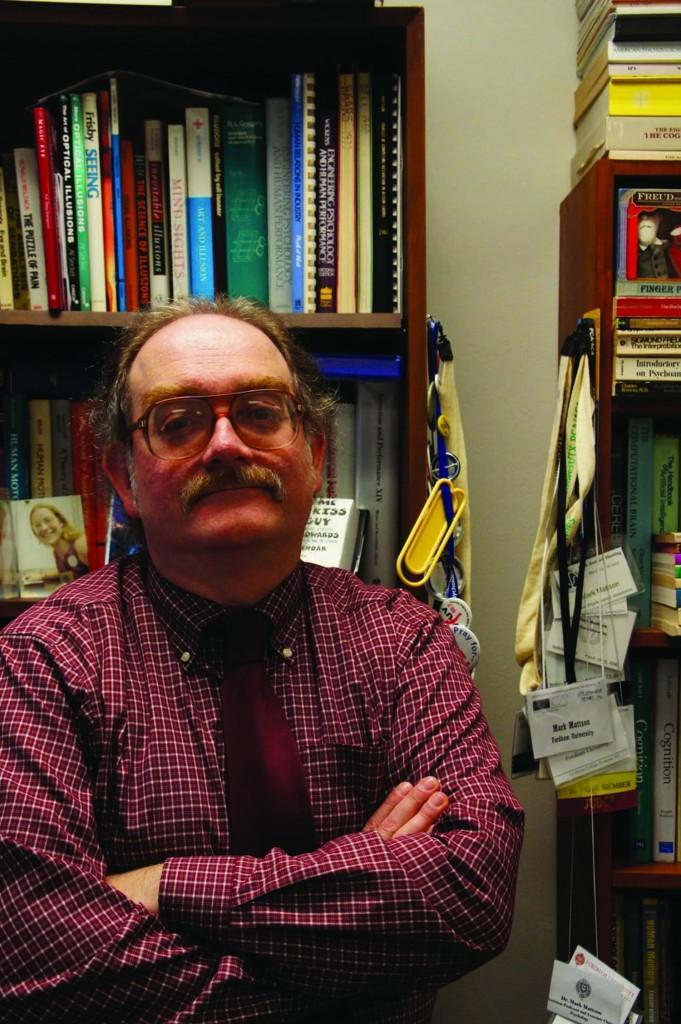Dean’s Office to Revise Advising Practices
October 18, 2012
A new student advising initiative is in the works at Fordham College at Lincoln Center (FCLC). According to Mark Mattson, associate dean at FCLC, the goals of the initiative are to increase retention and four-year graduation rates and resolve conflicts that seniors face while attending their spring advising meetings.

It was during last fall’s College Council meeting that United Student Government (USG) representatives proposed that the topic of student advising be discussed. According to Mattson’s Advising Initiative presentation, problems that were raised by students included “incorrect or no information from advisors” about registration. Faculty also raised concerns that students were arriving to advising session unprepared and expecting that the advisor would choose courses.
The University Leadership Council’s “Hardwiring Success: Building Disciplines for Retention and Timely Graduation” pamphlet said that when a student takes longer to complete his or her degree, the chances of dropping out or transferring are increased. “The longer a student remains in school, the more likely it becomes that accumulating costs, growing frustration, or extrinsic factors will prevent that student from finishing,” the University Leadership Council’s report said.
The new advising initiative seeks to improve the results of seniors’ spring meetings with their assigned advisors. “When they [students] look at their DegreeWorks audit, everything should be checked or marked with a blue tilde. We want 95 percent of students to be at that point when they meet with their dean during senior year, and right now we’re at about 50 percent,” Mattson said.
Megan Tribble, FCLC ’13, said that the advising problems stem from the students’ failure to take the initiative and speak directly with their advisors. “In my opinion, students are kind of clueless when it comes to advising. If they would just go and make an appointment with their deans, they would get the information they needed directly as opposed to getting it through the grapevine from other students indirectly,” Tribble said.
Mattson’s Advising Initiative presentation includes how administrators will play a key role in improving advising’s role at FCLC. Rev. Vincent DeCola, S.J., assistant dean for first year students, is responsible for introducing DegreeWorks. Arleen Pancza Graham, assistant dean for sophomores, has the role of assisting students with major declaration and major advising.
Joseph Desciak, assistant dean for juniors and transfer students is going to help resolve the issues that students encounter when applying study abroad credits to their DegreeWorks. Finally, Joseph Creamer, assistant dean for seniors, is responsible for making sure that students successfully complete their DegreeWorks audit, with the hopes of achieving Mattson’s projected 95 percent success.
In conjunction with Mattson’s current advising initiative, USG is currently creating a film that will address some of the frequently asked questions that students have in regards to advising. “At the moment, USG is working on creating an advising video. You can call it a pre-advising video,” USG President Alexa Rodriguez, FCLC ’13, said. “We are formatting it with FAQs for students to know specific things they should do in preparation to meet with their advisor.”
According to U.S. News and World Report’s Best Colleges ranking, Fordham’s rate of retention is 89.8 percent and the rate of students who graduate within six years is 78 percent. “We do better than other schools, but we’re not doing quite as well as our peer and aspirant schools,” Mattson said. “We are looking for ways to just move a little bit up. How do you do that? You can try to find the students who are planning on leaving and help them decide if that is the right choice for them. You try to do things that will improve retention across the board. That’s my motivation for the advising initiative.”
Rodriguez said that the USG video that is currently in the works will not influence Mattson’s desired 95 percent success in achieving a completed DegreeWorks audit during seniors’ advising meetings. “I think that USG is willing support this initiative in the capacity that Dr. Mattson sees as fitting. I don’t necessarily see it as being a major influence of change in that number. Anything can help bring it up,” Rodriguez said.













B • Oct 24, 2012 at 5:12 pm
Megan is absolutely right. People need to take ownership of their education and be proactive about seeking the help and advice they need to fill in the gaps in their degreeworks.